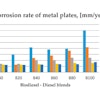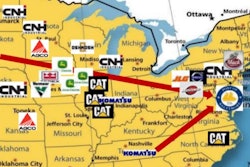
Many are aware that the antitrust laws prohibit companies in horizontal relationships (i.e., direct competitors) from sharing with each other nearly all competitively sensitive types of information. This includes data on things like pricing, production costs, customer lists, supplier lists, terms of sale like delivery and credit terms, strategies and future strategic planning, and even market conditions. But what about companies who are not competitors, but instead are in vertical relationships like manufacturers and their suppliers? While the risk of sharing competitively sensitive information between companies in vertical relationships is lower than that for those in horizontal relationships, risk is still present and companies can inadvertently run afoul of the antitrust laws.
Why would competitively sensitive information even be shared in vertical relationships? Two common examples include negotiations around accommodation agreements for distressed suppliers and joint production ventures whereby two or more competing suppliers are asked by a manufacturer to collaborate in the production of a specialized part or process. While these are just two examples, they demonstrate that while there may be noble intentions behind the sought-after information, oversharing can lead to potential antitrust concerns.
Accommodation Agreements
Accommodation agreements are agreements between a manufacturer and a distressed supplier whereby the manufacturer agrees to provide financial assistance and other accommodations to its distressed supplier in exchange for the supplier agreeing to maintain certain production capacities and supply levels for parts needed by the manufacturer. These agreements, which are common in the mobility and transportation industry, became more prevalent during the COVID-19 pandemic when global shutdowns created significant disruptions to the supply chain. Today, they remain a key tool to ensure that distressed suppliers continue to have access to liquidity and manufacturers avoid operational disruptions caused by an inability to acquire necessary parts and components. While these agreements can be an important lifeline for the viability of vertical relationships in various manufacturing industries, often, competitively sensitive information is sought by the manufacturer from the distressed supplier during the negotiation and due diligence phases of preparing the agreement.
It is common for manufacturers to request detailed information from their distressed suppliers, including competitively sensitive information, before agreeing to enter into an accommodation agreement. This can include identifying information on the suppliers’ other customers; historical, present and forecasted future sales data for other customers; planned new product and geographic market expansions; and detailed information on material and production costs. While the manufacturer may seek that information for valid reasons to ensure that the distressed supplier has the capacity to meet its obligations under the accommodation agreement, the sharing of these types of information can create antitrust concerns.
Of particular concern is the sharing of information related to the distressed suppliers’ relationships with other manufacturing customers because those other manufacturing customers frequently are direct competitors or potential competitors of the manufacturer entering into the accommodation agreement. The distressed supplier often has little control over how its customer uses such competitively sensitive information once the customer has it and has little leverage in preventing its customer from using it for anticompetitive purposes. In acquiring detailed data on pricing, sales volume, terms of sale like delivery and credit terms, and other competitively sensitive information related to its distressed supplier’s business with competitors and potential competitors of the manufacturer, the manufacturer has potentially gained an unlawful competitive advantage.
It would most likely be unlawful for the manufacturer to acquire competitively sensitive information directly from its competitors and potential competitors. Using a distressed supplier as a backdoor conduit for acquiring such competitive intelligence does not necessarily eliminate competition concerns. Indeed, doing so may create antitrust liability for both the manufacturer and the distressed supplier.
Joint Production Ventures
Another area where issues may arise with information sharing in vertical relationships is with joint production ventures. Joint production ventures occur when a manufacturer asks two or more suppliers, who often compete with each other, to collaborate to produce a specialized part or component. Joint production ventures look similar to joint ventures and generally are treated as such under the antitrust laws even if a separate legal entity is not created. While competitor collaborations can be permissible under the antitrust laws, care must be taken in the kinds of information that are shared between the competitor suppliers participating in the joint production venture and the fact that the vertically situated manufacturer requests the collaboration does not shield the competitor-participants from antitrust liability.
The antitrust laws allow for competitor collaborations like joint production ventures when the purpose is to increase efficiency, create new products, promote research and development, or other goals that may benefit consumers. Often such ventures are treated as procompetitive by the enforcement agencies and the courts when they allow expansion into new markets, lead to innovation or the creation of new products, or generate lower production costs by pooling resources, equipment, or processes. The extent of the cooperation, however, should be limited to what is reasonably necessary to accomplish the purpose of joint production venture. Information sharing should be limited to what is reasonably necessary to accomplish the stated lawful objectives, and disclosure should be limited to the individuals who are directly participating in the collaboration. Frequently, participants will sign nondisclosure agreements so that information shared for purposes of the venture is not used to coordinate activities outside of the collaboration.
The key to such collaborations is to limit the joint production venture’s ability to spill over into other areas outside the collaboration where the competitor-participants continue to compete. Best practices include reducing the structure and purpose of the joint production venture to writing, reviewed by antitrust counsel, and avoid sharing competitively sensitive information for activities outside the venture on topics like prices, including costs and rebates; bids; individual production costs; capacity; production and sales volume; profits; terms of sale; licensing terms; new product plans; wage, salary or employee benefit information; strategic plans; and customer lists.
The competitor-participants must also avoid discussing or agreeing on terms that could restrict competition outside the scope of the collaboration. This includes topics such as coordinating prices or output outside the collaboration, agreeing to divide customers or markets, and agreeing whether to deal with particular customers outside the collaboration. The competitor-participants must also avoid sharing these kinds of competitively sensitive information with the vertically-situated manufacturer to reduce the risk of that information then being shared with other competitor-participants. It is important to remember that using the manufacturer who facilitates the joint production venture as a conduit for the impermissible sharing of competitively sensitive information will not absolve the venture participants or the manufacturer from antitrust liability.
Avoiding Harm to Competition & Antitrust Liability
- Suppliers should avoid sharing competitively sensitive information with vertically situated customers even in the context of accommodation agreements, particularly information about the suppliers’ other customers.
- When competitively sensitive information must be shared to achieve the lawful purpose of the agreement or venture, only share high level, aggregated historical data. Generally, historical data is better than current data, and both are better than future projections.
- Minimize the exchange of competitively sensitive information between joint production venture competitor-participants, particularly information related to costs or current or future pricing outside the venture.
- Consider using separate employees to manage pricing and marketing decisions for the venture to avoid the appearance of collusion.
- Avoid exclusivity provisions or other restrictions on competition between the joint production venture participants. Restrictions that are critical to the feasibility and purpose of the joint production venture may be permissible, but they have to be as narrowly tailored as possible and limited in duration where feasible.




















